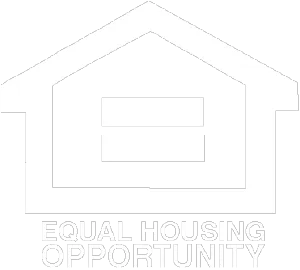Resources to Get You In a Home.

Loan Options for Self-Employed Borrowers Who Maximize Expense Write-Offs
Self-employed individuals often face unique challenges when applying for a mortgage. One common issue arises when business expense write-offs lower taxable income, making it harder to qualify for a traditional loan. Fortunately, there are several loan options tailored to self-employed borrowers. Let’s explore the most popular solutions.
Why Traditional Loans May Not Work for Self-Employed Borrowers
Traditional loans, such as conventional or FHA mortgages, often rely on your taxable income as reported on your tax returns. If you write off a significant portion of your business expenses, your net income may appear too low to qualify, even if your business generates substantial cash flow.
Loan Options for Self-Employed Borrowers
Here are some specialized loan programs that provide flexibility for individuals with unique financial circumstances:
1. Bank Statement Loans
How They Work: Instead of relying on tax returns, these loans use 12-24 months of personal or business bank statements to calculate income. Lenders review your deposits to determine average monthly income.
Who It’s For: Self-employed borrowers with consistent cash flow but significant tax write-offs.
Documentation Needed: Bank statements and potentially a letter from your CPA to explain your income.
2. Profit and Loss Statement Loans
How They Work: Lenders use a 12-month profit and loss statement prepared by your CPA to assess your income. This allows them to consider your gross earnings before deductions.
Who It’s For: Borrowers with substantial earnings but minimal taxable income due to write-offs.
Documentation Needed: CPA-certified profit and loss statement.
3. Asset Depletion Loans
How They Work: This option calculates income based on your liquid assets, such as savings, investments, or retirement accounts. The lender “depletes” these assets over a defined period to estimate qualifying income.
Who It’s For: Borrowers with significant assets but inconsistent or low reported income.
Documentation Needed: Asset statements and proof of ownership.
4. DSCR Loans for Investment Properties
How They Work: DSCR (Debt Service Coverage Ratio) loans evaluate rental income against the property’s mortgage payment rather than the borrower’s personal income. This makes them ideal for investment purchases.
Who It’s For: Investors looking to grow their portfolio without using personal income for qualification.
Documentation Needed: Lease agreements, rental income estimates, and property appraisals.
Benefits of Non-QM Loans for Self-Employed Borrowers
Non-QM (Non-Qualified Mortgage) loans, which include the options above, offer several advantages:
Flexibility: Alternative income verification methods accommodate diverse financial situations.
Higher Loan Limits: Borrowers with substantial income or assets may qualify for larger loans.
Tailored Solutions: Customizable terms to fit your unique needs.
Things to Consider Before Applying
While these loan options provide flexibility, they often come with:
Higher Interest Rates: Reflecting the increased risk for lenders.
Larger Down Payment Requirements: To offset potential lending risks.
Stricter Documentation Standards: Ensure your records are accurate and up to date.
Final Thoughts
If you’re self-employed and concerned about qualifying for a mortgage, these alternative loan options can help. By working with a knowledgeable loan officer, you can find a solution that fits your unique financial situation and goals.
low doc/no doc”, “no income/no asset”, “stated income”, “stated asset”, “no ratio” or similar loan
products may have a higher interest rate, more points, or more fees than other products that require
income documentation;
For more information on Non-QM loans, visit the Consumer Financial Protection Bureau’s mortgage resources: https://www.consumerfinance.gov/owning-a-home/

Social Media Links
YouTube

